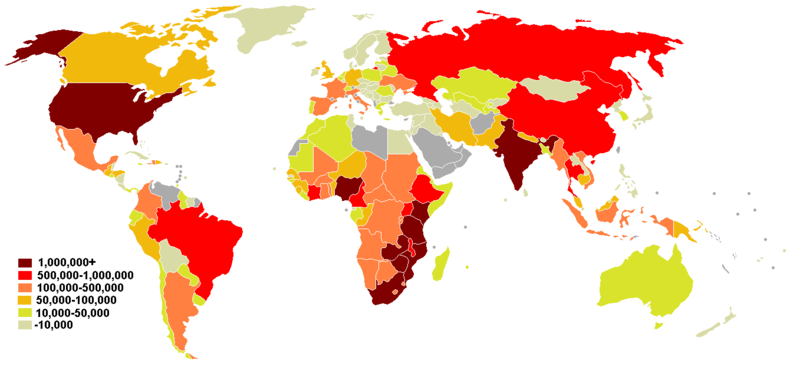AUSTRALIA has reported its highest number of new HIV infections in almost 20 years, but cases of infectious syphilis, gonorrhoea and hepatitis have dropped, leading experts to conclude the safe sex message is getting through.
About 1050 new cases of HIV were reported last year, a level not reached since 1993. The numbers had remained relatively stable for four years, giving researchers hope that the disease was being restrained.
''There will always be people who have missed the key message, or don't remember the awful days when all their friends died, but the majority of people have embraced [safe sex],'' said Edwina Wright, the vice-president of the Australasian Society of HIV Medicine.
Advertisement: Story continues below
''It's not complacency. People have made a huge effort.''
Two-thirds of new cases were in men who had sex with men but a growing number of those diagnosed were heterosexual men and women, predominantly from countries where the disease is rife.
''The reality is the figures have plateaued,'' Dr Wright said. ''Of course, we'd like to see only 500 people or less being diagnosed each year, but it is clear the education campaigns have worked.''
David Wilson, from the National Centre in HIV Epidemiology and Clinical Research, agreed, saying HIV research and education campaigns had been victims of their own success.
''We can help people live relatively normal life expectancies if they stick to a drug regime, but that means they are around to spread the virus to others for decades.''
He said the success of anti-retroviral drugs could also have made the disease less frightening to younger men.
''It is still a life-altering diagnoses but it is not the death sentence it once was, if it is treated, so perhaps people are not as fearful.''
Dr Wilson said condom use had dropped but more men were choosing to disclose their HIV status to potential partners, up from 50 per cent of HIV-positive men 10 years ago to 62 per cent last year. About a quarter of gay men reported having unprotected sex with casual partners.
New chlamydia infections were still soaring, however, with 62,000 cases reported last year, up 4 per cent from 2008. Teenagers and people in their 20s were driving the epidemic, and many were probably unaware they had the disease, he said.
''Only 25 per cent of people [with chlamydia] have symptoms, so we really don't know how many people out there have it.''
Associate Professor Wilson said the HIV, Viral Hepatitis and Sexually Transmissible Infections in Australia Annual Surveillance Report 2010, which will be presented at a conference in Sydney tomorrow, also showed that rates of syphilis, which had been rife about five years ago, had stabilised.
Hepatitis B infections had also stabilised and hepatitis C cases had dropped, he said.
''But about 5 per cent of those with hepatitis B and 28 per cent of those with hepatitis C require liver transplants and every one of those costs taxpayers abut $120,000, so it's a huge health and economic burden.''





